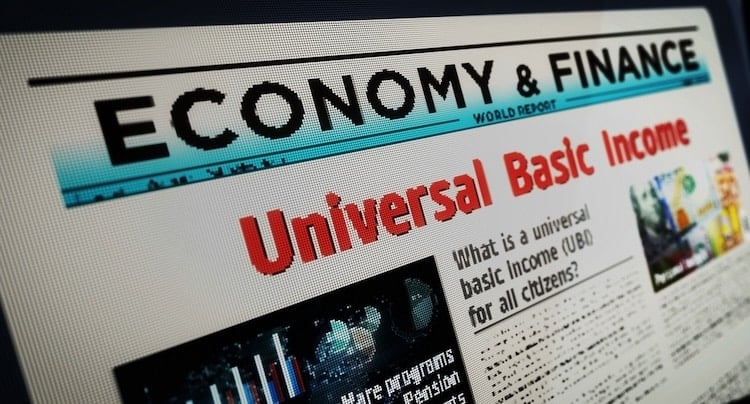Can Universal Basic Income really improve mental health?
Recent tests of UBI reveal that guaranteed income provides immediate mental health relief, but long-term benefits may depend on long-term economic security.

Interest is growing in the idea of Universal Basic Income (UBI) – a standard amount paid by the government to every adult member of society, regardless of their personal or financial status. But can it achieve its stated goals of reducing poverty, improving working conditions and increasing welfare? Thanks to the world’s multitude of experimental programs that put these applications to the test, answers to this question are beginning to emerge.
In 2020, 1,000 low-income people in the US states of Texas and Illinois began receiving $1,000 a month for three years as part of America’s largest UBI study. No conditions were attached – participants could use the money as they wished. The results of this large and well-designed experiment provide fascinating insight into how people would spend their time and money if they were guaranteed more money.
Spending increased, especially on food, rent and housing, as well as savings. Time spent at work is reduced (by 1.3 hours per week) – not a bad thing in the eyes of UBI advocates, who insist that the purpose of UBI is not to increase overall employment but to put pressure on employers to improve the quality of work and to allow. people to devote more time to lifelong learning and unpaid activities, often of social importance, such as caregiving. Among job seekers, participants were more selective about the jobs they applied for and were more likely to cite “interesting or meaningful work” as a requirement.
In terms of health, income had insignificant effects on most indicators – not surprising, since the study took place over three years, when health problems persisted first for life. However, mental health was one notable exception that is consistent with other findings on basic measures such as income. The study found “significant improvements … in measures of mental health such as depression and anxiety.” However, this can only be seen in the first year of the trial. Why was this improvement so short-lived?
A new UN report being presented to the General Assembly in New York this month provides answers. The report highlights how living in poverty increases the risk of mental health problems. Although 970 million people – 11% of the world’s population – have a mental health condition, those with low incomes are three times more likely to suffer from depression, anxiety and other common mental illnesses than those with higher incomes.
The report finds that economic insecurity is a major cause of depression, especially in today’s “slack economy,” where low-income earners find themselves in menial, low-paying jobs. low that does not pay enough money to take care of their families or in dangerous situations. , temporary contracts with an unpredictable work schedule. Economic stress – or even just the prospect of such shocks and the impact they will have on money – is found to be a major cause of stress.
We need your support.
Continue to publish independent publications and support progressive ideas. Join Social Europe for less than 5 Euros per month. Your help matters – join us today and make a difference!

Given the chronic level of economic insecurity among those living in poverty, it is understandable that participants in the US trial reported lower levels of depression and anxiety once they started receiving their monthly payments and month. At its most basic level, guaranteed income provides breathing space for the poor so they don’t have to worry about how to put food on the table. Given the many other challenges low-income people face, a year’s relief from the psychological effects of economic uncertainty should not be taken for granted.
Importantly, the income came without conditions – finding a job, training, attending meetings, and filling out complicated forms – which, in a world of welfare sanctions and marginalization, are increasingly rare. This is despite evidence that these conditions are ineffective and can be psychologically damaging to beneficiaries.
In the second year of the experiment, the effects of UBI on mental health had disappeared. Opponents gleefully point to this as proof that UBI’s promises are baseless. However, it certainly supports the view that economic insecurity has a significant impact on mental health and that this sense of security will inevitably diminish when the end of cash transfers is reached. it is getting closer.
The value of UBI lies not only in the income it provides, but in the security and predictability it provides. What will lifetime security mean for poor people? As their mental health issues worsen day by day, it is a question that needs to be asked.
#Universal #Basic #Income #improve #mental #health
